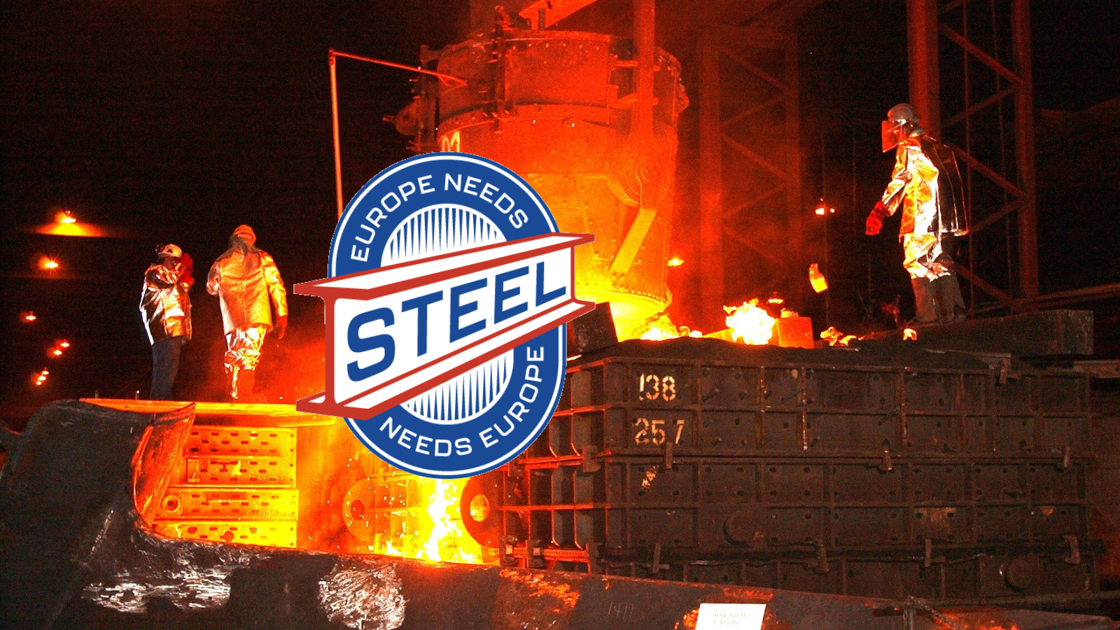Social dialogue has never been more important. In times of crisis, workers and employers need to come together and discuss how to ride the storm.
The European steel sector and steelworkers are facing three huge crises – energy, raw materials, and cost-of-living. The gravity of the situation has prompted the European steel social partners, industriAll European Trade Union and EUROFER, to issue a joint statement with urgent demands to save this critical sector and thousands of direct and indirect jobs.
The energy and raw materials crises, exasperated by Russia’s illegal invasion of Ukraine and the subsequent EU sanctions, has dramatically impacted the European steel sector. The sector was already suffering from global trade distortions, with unfair state aid leading to global overcapacity and cheap steel being dumped on the EU market. The energy and raw materials crises are leading to even more unfair competition, with impacts that are much stronger in Europe than in other steel producing regions. Energy costs, around seven times higher than before the crisis, are much higher in Europe than in other steel producing regions. The disruption or cessation of traditional raw material supplies from Russia and Ukraine, such as iron ore, is forcing European companies to obtain supplies from other countries at a much higher cost.
Profound impacts are already being seen. ArcelorMittal has slowed production at its plant in Hamburg, Germany. Production will be stopped altogether in the fourth quarter of this year in this flagship site for low-carbon steel production. At Dunaferr in Hungary, a second blast furnace was closed down due to difficulties in accessing raw materials. Around 4,000 workers are linked to this site. Stainless steel producer Aperam (Genk, Belgium) stopped production this summer and has not yet resumed, leaving 1,250 workers on temporary leave.
Judith Kirton-Darling, Deputy General Secretary at industriAll Europe said:
‘’The message from both the steel industry and its workers is clear: we need urgent action to safeguard the sector in Europe. This includes short-term emergency solutions that limit the costs and prices of gas and electricity while also ensuring security of supply. We need continued investments in both steel plants and workers and a regulatory framework to create lead markets for green steel. Steel is vital for Europe’s economy and we must prevent companies and jobs relocating to regions with less stringent climate policies.’’
The joint statement follows industriAll Europe’s call for action to prevent industrial workers falling victim to the energy crisis. It also highlights the huge pressure on wages, erosion of purchasing power and the rise of in-work poverty due to soaring inflation.
Judith Kirton-Darling, added:
“Social dialogue has never been more important. In times of crisis, workers and employers need to come together and discuss how to ride the storm. Workers must be informed and consulted, and respecting social dialogue is top of the joint list of demands.
‘’EU funding is vital to support national short-term work schemes. This is why trade unions are calling for SURE 2.0. We need to keep companies afloat but insist that any public funding has strong social conditionality in place.
“We will continue to work with our social partners and policy makers to prevent European workers being left behind. Steel needs Europe and Europe needs steel!’’
Joint statement of the social partners: EN
